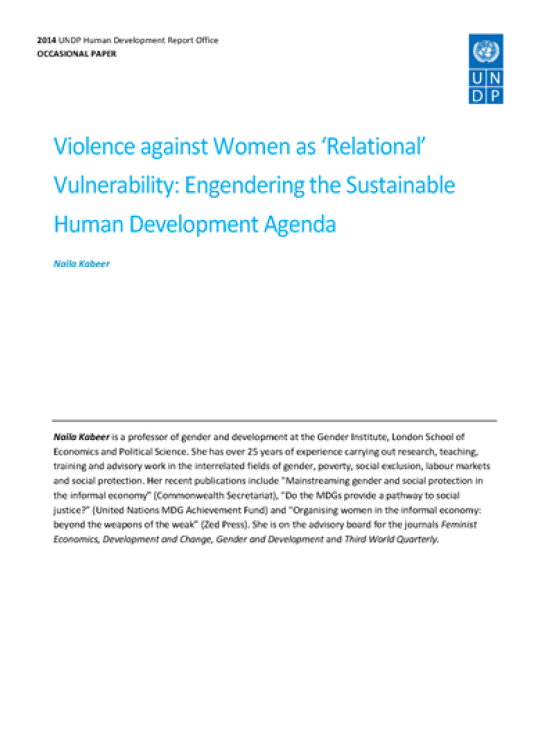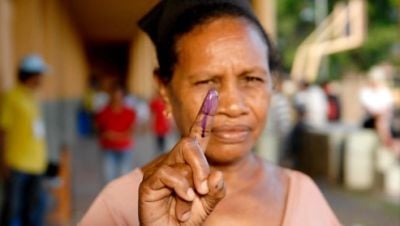Violence against Women as ‘Relational’ Vulnerability: Engendering the Sustainable Human Development Agenda

Download Report by Language
Document
kabeerhdr14.pdf
(893.3 KB)
Citation
Kabeer, Naila. 2014. Violence against Women as ‘Relational’ Vulnerability: Engendering the Sustainable Human Development Agenda. New York.
Violence against Women as ‘Relational’ Vulnerability: Engendering the Sustainable Human Development Agenda
Posted on: January 01, 2014
Violence against women can be conceptualized as a ‘relational vulnerability’, reflecting women’s subordinate status within hierarchical gender relations and the dependencies associated with it. While such violence can take many different forms, this paper focuses on the interpersonal violence of ‘normal’ times, most often within the home at the hands of intimate partners. The paper provides estimates of incidence, which suggest that it varies considerably across countries and by social group. Factors that lead to violence against women operate at individual, relational, community and societal levels, and help to explain some of this variation. They also suggest the need for interventions operating at these different levels. In conclusion, the paper argues that not only is violence against women and girls a fundamental violation of their human rights, but also has serious consequences for their well-being and capabilities, and imposes significant economic costs. These comprise both the direct financial costs of dealing with the phenomenon and the indirect productivity costs that result from it. Ending violence against women is a key component in any sustainable human development agenda and a critical priority for the post-Millennium Development Goal (MDG) development framework.

